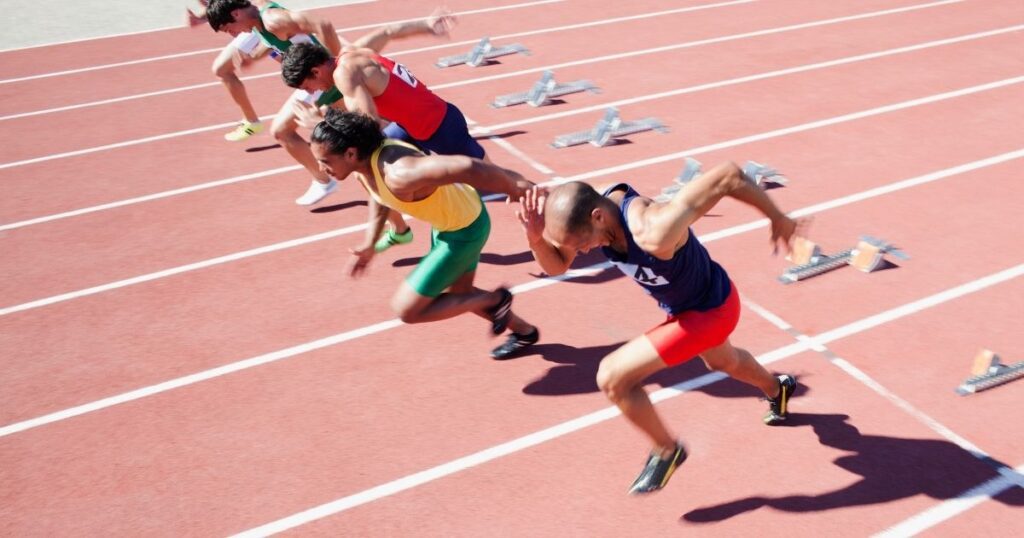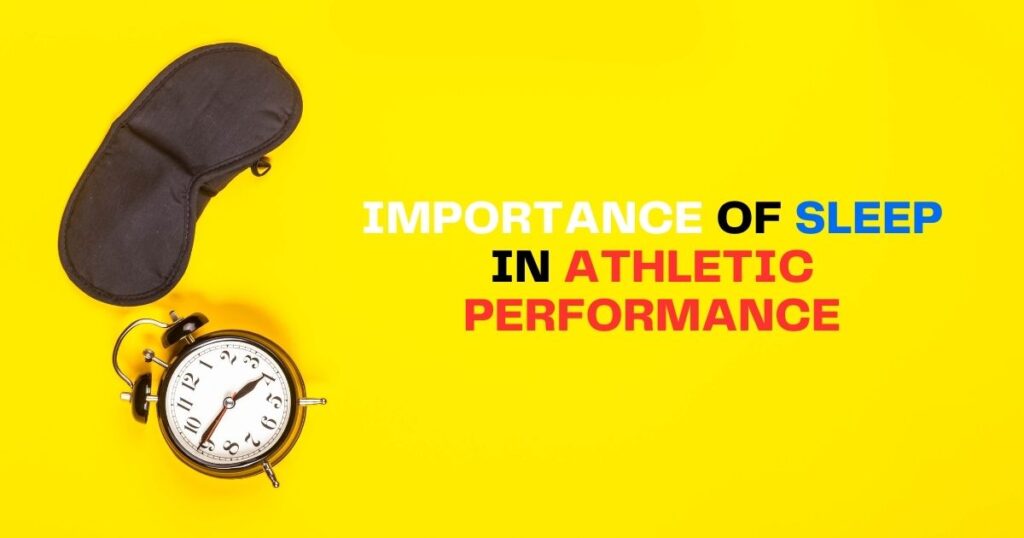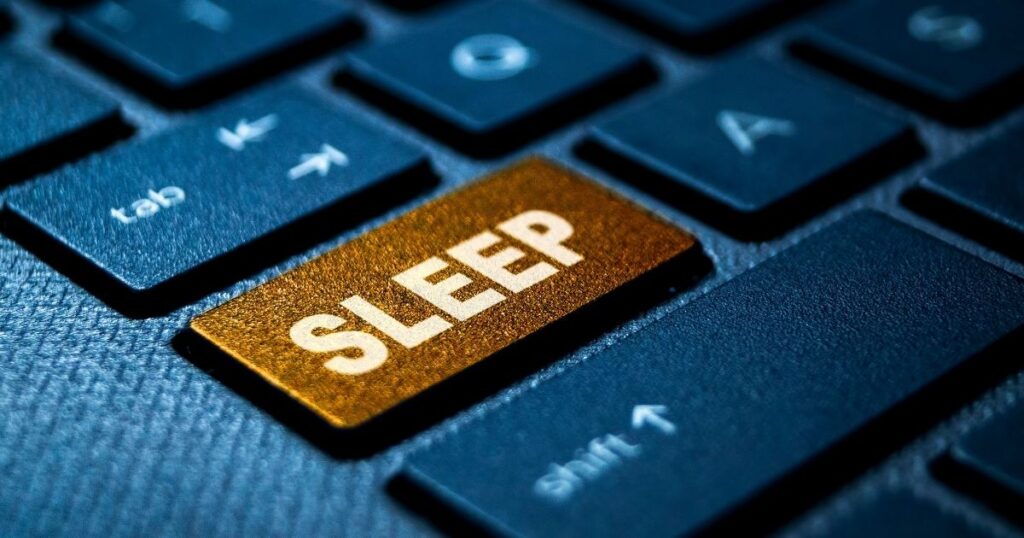Science confirms that getting sufficient high-quality sleep is just as important to athletes as nutrition and training itself and boost athletic performance. During sleep, the body undergoes restorative functions that enhance muscle recovery, energy restoration, tissue repair, cognitive sharpness, and injury resilience. Prioritizing sleep is imperative for athletes seeking to perform at their peak.
Understanding the stages of the sleep cycle, the physiological benefits sleep provides, and strategies to optimize sleep can help athletes leverage sleep’s performance-enhancing powers. Coaches and trainers who educate athletes on making sleep a priority will gain a proven edge over the competition.
Optimizing Sleep’s Restorative Stages
- Sleep progresses through stages including light sleep preparing for deeper phases, REM sleep when dreaming and memory consolidation occurs, and slow wave sleep which is the deepest and most physically restorative.
- The sleep cycle repeats roughly every 90 minutes as the body alternates between REM, light sleep, and deep sleep throughout the night.
- Disrupting these cycles by awakening or preventing deeper stages impairs sleep benefits. Prioritizing 7-9 hour nights enables completing enough cycles.
- Research shows athletes benefit from slightly more nightly sleep than the average person due to increased demands from training.

The Physical Performance Benefits of Quality Sleep
Sleep enhances athletic performance through cellular, muscular, and hormonal mechanisms:
- Growth hormone and testosterone increase during sleep, repairing muscle and stimulating gains. Disrupted sleep lowers hormone levels.
- Cells rebuild damaged muscle fibers at night after training breakdown during the day. Sufficient sleep speeds strength improvements.
- Energy production pathways like ATP recharge overnight. Deficits sap endurance capacity and intensity.
- Blood flow increases during deep sleep stages, repairing strained or injured tendons, joints, and tissues to reduce injury risks.
Sleep serves athletes much like the rest period between weight training sets – allowing muscles to recover and maximize adaptations.
Mental Performance Enhancements from Adequate Sleep
Along with physical gains, research confirms sleep improves cognitive abilities vital for athletic performance:
- Quick reactions and reflexes rely on well-rested central nervous system pathways. Fatigue dramatically slows reaction speed.
- Motivation, determination, and willingness to train intensely are elevated with sufficient sleep compared to deficits.
- Focus, attention span, and concentration are strengthened while distractibility is reduced.
- Consolidating motor learning and technical skill development requires adequate REM sleep.
Mentally, proper sleep primes athletes for sharp decision-making, relentless motivation, and ignoring distractions during competition.

Risks of Sleep Deficiency for Athletes
Studies consistently show athletic capabilities diminish severely without adequate sleep:
- Just one night of missed sleep can decrease endurance capacity by 10-30%. Chronic sleep debt compounds such losses.
- Power output, sprint speed, and explosiveness all decline following poor sleep due to suboptimal muscle recovery.
- Slowed reaction times after sleep deprivation degrade hand-eye coordination and responsiveness.
- Overtraining injury risks skyrocket when pushing through fatigue without proper recovery.
Sleep deprivation hampers all aspects of performance. Maximizing sleep is vital for peak performance and avoiding injury.
Strategies to Improve Sleep Habits
Athletes can optimize sleep by:
- Maintaining a completely dark, cool, and quiet sleep environment. Use blackout shades, earplugs, a fan, or a white noise machine.
- Following a consistent pre-bed routine like light reading to signal sleepiness.
- Avoiding late-night TV, phones, and heavy foods that disrupt sleep.
- Limiting caffeine intake, especially in the PM.
- Sticking to the same sleep-wake times daily, even on weekends.
Small tweaks to sleep hygiene can significantly improve duration and restfulness.
Maintaining Sleep Quality While Traveling
Road competitions often disrupt athlete sleep. Useful tips to minimize issues include:
- Strategically planning travel timing and duration to reduce jet lag effects.
- Mimicking competition time frames with training immediately upon arrival.
- Taking melatonin supplements at proper times to signal sleep onset.
- Using light therapy devices to shift circadian rhythms after time zone changes.
- Following consistent sleep routines in hotel rooms through darkness, white noise, and wind-down practices.
With proper discipline, athletes can maintain sleep patterns despite travel demands.

Conclusion
Along with training and nutrition, sleep serves as a foundational pillar of athletic success. Teams investing in educating athletes on its importance and equipping them with sleep optimization strategies will reap substantial performance dividends. The best training programs are only as effective as the recovery that follows.
Frequently Asked Questions About Athletic Performance
Q: Why is sleep important for peak athletic performance?
A: Sleep facilitates muscle recovery, energy restoration, tissue repair, mental sharpness, and skill development necessary for excelling.
Q: How much nightly sleep do athletes need?
A: Most athletes need 7-9 hours nightly. Intense training periods may require upwards of 10 hours to fuel recovery.
Q: What sleep habits can athletes improve?
A: Following consistent sleep-wake times, limiting night electronics and caffeine, and optimizing the bedroom environment.
Q: How does sleep affect reaction time and coordination?
A: Lack of sleep slows reaction times and hand-eye coordination substantially while adequate rest maintains quick reflexes.
Q: What effects does sleep deprivation have on athletes?
A: Reduced endurance, power, and performance. Increased injury risks and longer recovery. Impaired focus and motivation.




